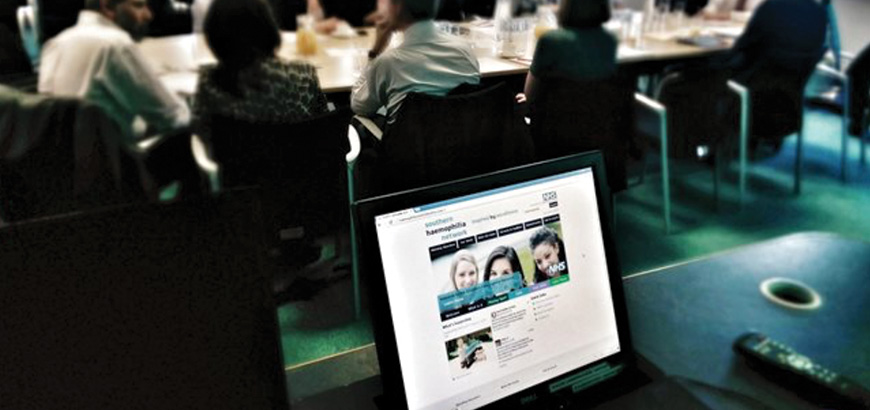In order to live life to the fullest and truly become independent as a young person with a bleeding disorder, you must become responsible for managing your condition.
Lifestyle
It’s your life!
As you get older, your welfare and treatment will become your responsibility – which is great because it allows you to take control of your life. This is especially the case when you decide to move out and won’t have your parents around on a daily basis.
There are several questions you need to ask yourself to ensure you are prepared for what comes next:
– Do you understand your condition fully?
– Do you know what your treatment options are and how to administer them?
– Do you understand the importance of taking your medication – even when you might not want to, or feel like you don’t need to?
– Do you have a plan for who to contact when you do move out? You might need to register with a new GP and haemophilia centre
Being clear on the above questions will enable you to look after yourself, so you can lead your life with just as much freedom as anyone else. It is only when you don’t respect your bleeding disorder that it can become a barrier. Therefore talk to healthcare professionals, talk to your parents, and read online resources to help you.
Healthy lifestyle
Regular exercise and a nutritious diet are essential in maintaining a healthy lifestyle. Our key advice is to:
– Exercise
– Eat at least seven portions of fruit and vegetables a day
– Take your medication as it has been prescribed by your healthcare team
See more on exercise on the Sports and exercise page.
Friends, family and relationships
For many, adolescence may feel like a significant step because the nature of your relationship with your parents is changing. As you grow up becoming more independent is important, but your parents still worry about you and at times they may seem over-protective because they are used to looking after you. You have to understand that parents of children with bleeding disorders are always going to fret (especially when you announce your first holiday abroad with friends!), but you are able to manage the situation by displaying openness and showing responsibility. If you can reassure them and demonstrate an adult sensibility in regards to medication and risky behaviour, then you can maintain a happy relationship.
It is likely that during this period of your life, you will explore relationships and face new dilemmas such as when or whether to tell your significant other about your bleeding disorder or if you are a carrier. There is no right answer a lot of the time when it comes to opening up, it is up to you; only you can judge the situation, the seriousness of the relationship, and whether you want to tell your partner. However, promoting an open and honest relationship is a positive step for both of you, and can be a great opportunity for you to reassure your partner.
Furthermore, educating yourself and your partner in safe sex is important as well as considering how to avoid bleeds and what to expect. Like any physical activity sexual intercourse can sometimes cause bleeds, with certain positions increasing the likelihood, and if you are a woman you may feel anxious about heavy bleeding. The best way to seek advice on these issues is to discuss them with a member of your healthcare team who you feel comfortable with.
Staying healthy
Ensuring your emotional wellbeing during this time is key. The stress and anxieties of growing up and taking on new responsibilities can sometimes get too much, which is why it is so important to make sure you talk openly about what is bothering you with people you trust. Whether it’s a friend, family, or healthcare professional, sharing your problems is the best way to move forward.
If you are a carrier, you may want to talk to a health or social care worker who can support you with your journey into adulthood. As a symptomatic patient you may want advice on how to manage independently. Always know that there are people around you to talk to. This could mean joining a support group, getting in contact with people in the same circumstance as you, or being referred to specialists who can help you to overcome more serious cases of anxiety and emotional strain.
You may be tempted to experiment with alcohol, drugs, and body art as you grow up; and we can only advise that you become aware of the dangers involved in these activities. Firstly, the consumption of a significant amount of alcohol can impair judgement and cause a loss of coordination, which increases the likelihood of having an accident and so increases the risk of a bleed. Trying to self administer clotting factor can then be more risky. Furthermore smoking and taking drugs pose the same dangers for people with bleeding disorders as people without, but you should keep in mind that using them can be dangerous because they affect your perceptions heavily which could lead to injury, and many are illegal. Body art poses many risks for people with bleeding disorders in terms of piercing the skin and possible infections, and so before getting any piercings or tattoos you need to think carefully about whether it is something you really want to do, and what you can do to stay as safe as possible.







